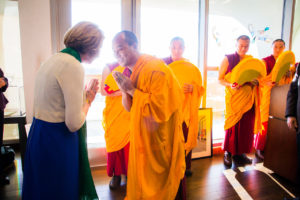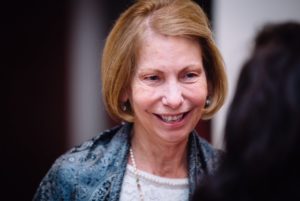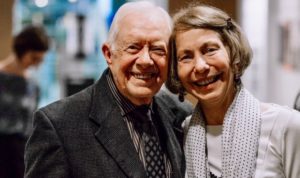This term is related to the Tibetan word “bardo,” which refers to a state between someone’s death and rebirth. Some simply translate the word as an “intermediate state” and others prefer to translate it as an “in-between state.”
—Geshe Lobsang Tenzin Negi
We are all travelers in the in-between states of existence, between life and death, between one place and another, between sleeping and waking and sleeping again.
—Brendan Ozawa-de Silva
What is Between Traveler?
This site interweaves several strands in contemplation of the tiny spaces we inhabit between states of being: waking and sleeping; ourselves and others; this life and the next one. The term “between traveler” is related to the Tibetan word “bardo,” which refers to a state between someone’s death and rebirth, or other intermediate conditions.

0030807-18AW: Retirement Reception Honoring Rosemary Magee
The overall Between Traveler digital platform brings together an assemblage of writings, narratives, reflections, short documentaries, and images are juxtaposed and, thereby, correspond and collaborate with one another. The materials, while very different in subject and voice, represent a kind of intersubjectivity, which usually relates to the shared consciousness or psychological relation between people. For my purposes, this concept also connects the inner meaning of distinctive yet interdependent material. Within this framework, I pursued two linked projects, Circumambulation and Recombination.
About Rosemary

0012504-18SN:
JAN 25, 2018: Rosemary Magee, the Rose Library Director received an award for her contributions to the arts over a 40 year career at Emory at the Creativity and Arts Award Night held in the Chace Gallery of the Schwartz Center on the Emory University Campus in Atlanta, GA. Stephen Nowland/Emory University
My travels commenced when I was very young–in fact an infant. As a child from a military family, we circumnavigated the globe. We walked everywhere we traveled, sometimes in circular patterns. I’ve continued this habit in my adult life when I’ve trekked near and far. Essentially, I’ve walked around revered spaces (ranging from the Emory Quadrangle to a labyrinth in north Georgia, to meadows in Ireland, to Buddhist temples in India) sustaining a state of deep thought. Traveling to India with my colleagues and having the occasion to spend time with both my daughter who was then living there and with His Holiness the Dalai Lama—as well as many other Buddhist monks and scholars—gave me a new way of experiencing this kind of exploration of the world, spirituality, and myself at the same time.

0110904-17SN:
NOV 9, 2017: President Jimmy Carter visits an Emory University human rights class at Emory University in Atlanta, GA. Stephen Nowland/Emory University
My travels include work in several roles for Emory University, time with my family, adventures with friends, and solitary meandering. Here I explore both the internal as well as external, the hidden as well as the evident, the fragmentary as well as the fulfilled journeys of the heart, soul, and material being.
“I love language because when it succeeds, for me, it doesn’t just tell me something.It enacts something. It creates something. And it goes both ways. Sometimes it’s violent. Sometimes it hurts you. And sometimes it saves you.”
—Claudia Rankine, poet, professor, and essayist (2017)
